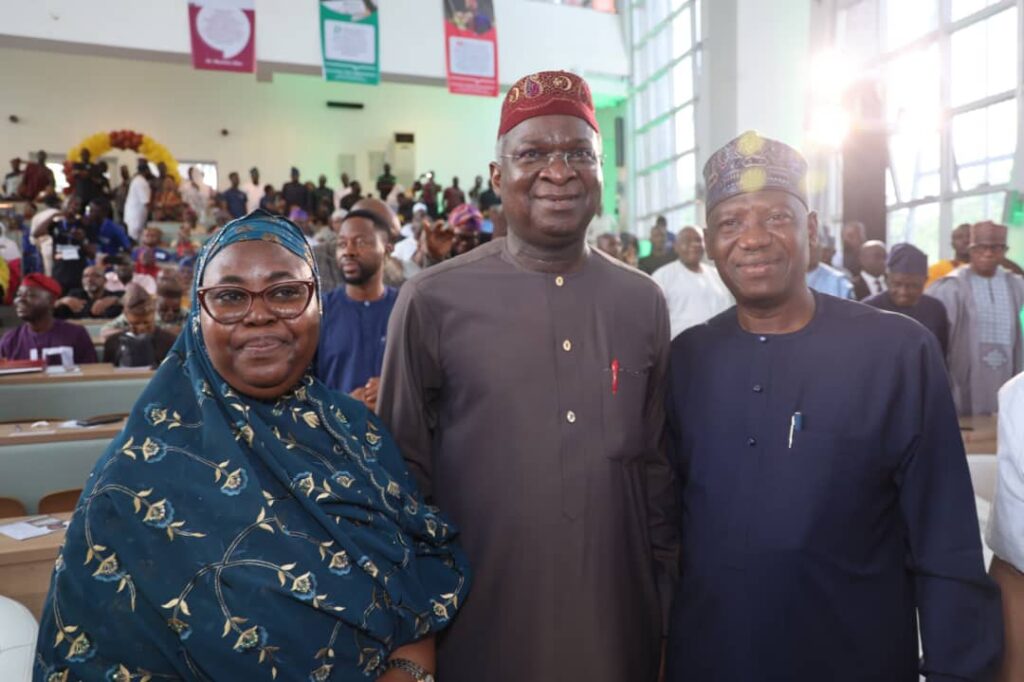Former Lagos State Governor, Babatunde Raji Fashola, has urged Nigeria to harness the multi-billion-naira sports industry as a strategic tool for tackling youth unemployment, warning that the country continues to ignore solutions hiding in plain sight.
Fashola, who also served as Minister of Power, Works and Housing, stated this on Sunday while delivering a lecture at the launch of veteran sports journalist Dr. Mumini Alao’s autobiography in Lagos.
Speaking on the topic “Re-thinking the Current Football Business Model in Nigeria as a Catalyst for Sports Development”, Fashola argued that the global sports industry has undergone a dramatic economic transformation, creating jobs and opportunities that disproportionately benefit young people.
“Yesterday’s hobbies and part-time engagements have become full-time, well-paid professions in today’s emerging global economic order,” he said.
“Sports employ mainly young people from their early teenage years up to around 40, with little space for those above 50. When I reflect on the Nigerian problem of youth unemployment, I tell myself that it persists perhaps because we have been ignoring the solution.”
Fashola described the sports sector as a “game-changer” capable of creating employment not only for athletes but also for professionals in law, medicine, architecture, engineering, therapy, media, and event management.
Citing examples from the global market, he noted that networks like Sky Sports, ESPN, DAZN, BeIN Sports, Fox Sports and SuperSport employ thousands of people worldwide in roles such as reporters, camera operators, editors, producers, and technicians.
“These are just jobs that support sports, not the jobs of the sportsmen themselves,” Fashola emphasised.
“If we reflect on the number of people employed by music, film, fashion, and photography, and then consider the possibilities in sports, it becomes clear what we have missed.”
The former governor also challenged Nigeria’s media landscape to expand dedicated sports coverage, questioning how many sports TV stations the National Broadcasting Commission had licensed compared to the number of channels operated by international networks.
Using the career of Mumini Alao—long-time editor and publisher of Complete Sports—as an example, Fashola highlighted how sports journalism alone has sustained careers for decades.
He called for sports to be integrated into Nigeria’s national development plan, backed by a nationwide awareness campaign, grassroots talent development, and professional training programmes.
“We must commit to optimising the enormous possibilities of sports, not just as entertainment but as a business and a profession,” he said.
The book launch attracted high-profile sports figures, including former Minister of Sports Development John Owan Eno, Chairman of the National Sports Commission Shehu Dikko, ex-international stars Segun Odegbami and Etim Essien, female sports broadcasters Modele Sarafa Yusuf and Aisha Falode, as well as media entrepreneurs, executives, friends, and family members of the author.
Do you want to share a story with us? Do you want to advertise with us? Do you need publicity for a product, service, or event? Contact us on WhatsApp +2348183319097 Email: platformtimes@gmail.com
We are committed to impactful investigative journalism for human interest and social justice. Your donation will help us tell more stories. Kindly donate any amount HERE




